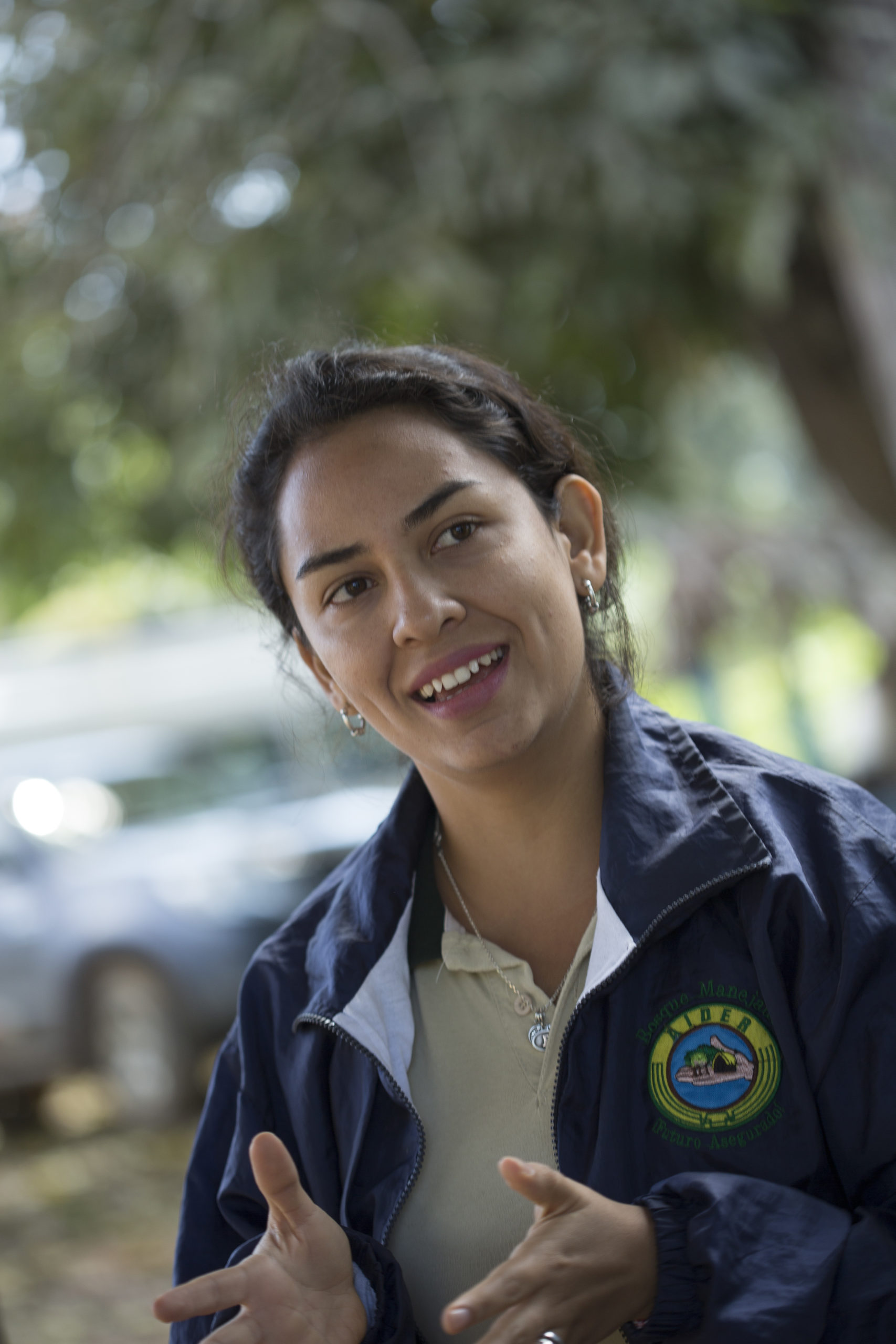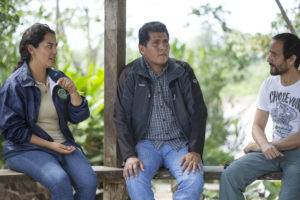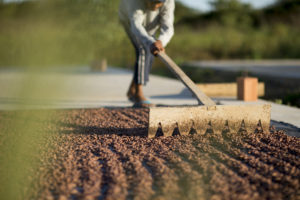Forest hero: Paola, Agroforestry
Meet Paola Coronado Bernet, she is a forest engineer who works as an agroforestry specialist and also helps to monitor project objectives and milestones at AIDER, our NGO implementing partner on the ground at the Tambopata-Bahuaja Biodiversity Reserve project in Peru. Her role is to help train up the 400 cacao farmers that the project aims to work with by 2021.
These farmers live and work in the buffer zone around the protected natural area and are members of a cooperative which was founded with support from the project. Paola works to monitor the project objectives and milestones at AIDER and to train local people. This entails working alongside the technical team to assist the entire process of cacao farming from crop planting to harvesting. Paolo also works to attracts more people into the project to encouraged more farmers to practice sustainable agriculture and expand the reach and impact of the project. Paolo also is one of the forest engineers conducting workshops for the farmers to teach them about sustainable agriculture and best practices.
Read more about the objectives of the cacao cooperative here and how it helps to address the drivers of deforestation on the ground.
This work is one of the core approaches of the project – to develop sustainable alternative livelihoods for local communities that help to promote conservation and restore degraded lands at the same time as providing better incomes for families. The farmers take their cacao to a processing facility built by the project, which maintains quality and from where cacao is sold for high prices on international markets. These activities are critical to addressing the economic drivers of deforestation in the region.
We interviewed Paola about her work and experiences with farmers on the project.
What is a normal day at work like for you?
Paola: For me, a normal day is to work with the technical agroforestry team and all of our partners. We meet with the members of the cacao cooperative every day. We visit them on their plots to see how their work on the farm is going and also to understand their feelings about farming and taking a bet on conservation.
What do you like most about your job?
Paola: The most rewarding part of my job is that we are not only promoting a productive activity that will generate income for the producers, but I feel that we are changing their lives. We are making them value conservation, natural protected areas and also have an income to conserve. By this Paula means that with more income, people in the buffer zone can use the money to improve their agroforestry activities. This helps conserve the Reserve, keeping people away from those activities that contribute to deforestation.
What is the biggest challenge in your work?
Paola: The biggest challenges we have here in all the work at Tambopata is that we have in one region a mixture of people from all over Peru. This a young region, so we have high rates of migration of people moving in from everywhere. And the culture of each person is very important for the development of farming activities, because culture has different ways of doing things. Dealing with that has been a great challenge, but also a great satisfaction to be able to know a little more about each producer’s heritage.
Tell us about your most memorable day working for the project.
Paola: Many days have been recorded in my memory. But one day that was very, very exciting was the very first harvest of cocoa. What fun!
Thank you to all of Paola’s work to build the capacity of farmers on the ground and fight deforestation in the rainforests of Peru.
Read the story of one of the farmers, Aurelia, here


